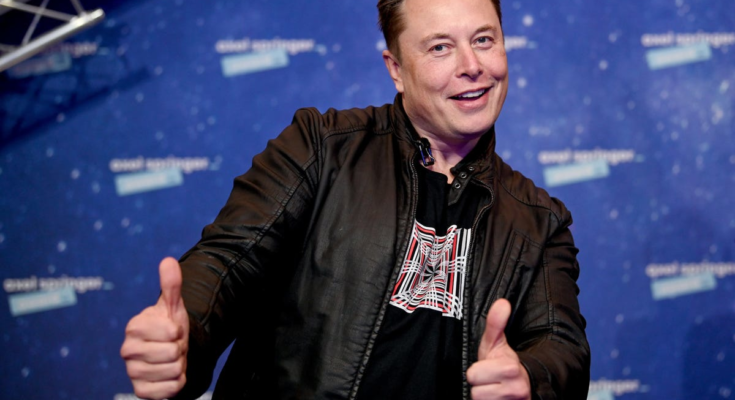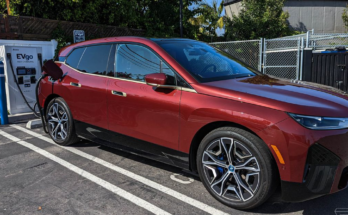
Is Elon Musk really that bad?
That’s both a question posed to me quasi-regularly from strangers who hear I cover climate change, as well as the title of a New York Times op-ed posted last weekend from technology columnist Farhad Manjoo. As the tech billionaire vies to buy Twitter, his critics are coming out of the woodwork, pointing out his concerning connections with misinformation superstars like Joe Rogan and the possible implications for the beleaguered platform.
But, as both Manjoo and random dudes at parties like to point out to me, Musk owns Tesla. He helped revolutionize electric cars and battery technology. He’s contributing the project to save the planet. “Through his endeavors in solar power and electric cars, Musk might do more to combat climate change than just about any lefty environmental activist or politician you can name,” Manjoo writes. What an endorsement!
It’s not an unfamiliar argument. American culture, after all, loves a renegade boy genius who is out to fix the world. It’s true that Musk, now the richest man in the world, has had an uncertain roller coaster ride to get to his massive wealth; he could have gone into oil production, emerald mining, or some other extractive industry that would have allowed him to make money in a more stable fashion, rather than betting big on an electric car company. But defending someone like Musk, whose success is based largely on the promise of these technologies rather than their actual effects and a very specific vision of a climate-friendly future, is a slippery slope, allowing us to potentially excuse future bad actors looking to make a buck off the energy transition simply because they’re working to “solve climate change.”
Let’s look first at Musk’s achievements in both electric cars and solar power, which Manjoo singles out. In many ways, Tesla is certainly deserving of a lot of praise here: it’s a behemoth of a company that has changed the cultural narrative around electric cars, taking them from dorky to a sleek vision of the future. Its groundbreaking vehicle technologies, particularly batteries, have helped to drive a conversation about what the future could hold for transportation; many of its alumni are also hard at work on other technologies like battery recycling and long-term storage. That is incredibly helpful for imagining the realities of a world without fossil fuels.
In terms of actual execution, however, it’s a bit of a different story. While Tesla’s vehicle sales have grown impressively over the last decade, with regard to solar power, Tesla’s track record is a lot more spotty: the rollout of its much-hyped solar roof was a monumental failure, and the company is currently under investigation by the SEC for not notifying shareholders and consumers of fire risks from its solar panel systems. (So much for Manjoo’s claim that Musk has “repeatedly delivered on his far-out promises.”) Meanwhile, the company was recently ranked last in an analysis of tech giants in regards to working on reducing its own emissions; it’s “an interesting case of a company that creates products significant to the energy transition yet displays a serious lack of disclosure related to its own emissions,” the report said. Musk’s other venture, SpaceX, is aiming to jumpstart the space tourism industry—which has potentially enormous downsides for the ozone layer as well as greenhouse gas emissions.
Importantly, it’s the hype of Tesla—the promise of the vision it’s selling—that has mostly enriched Musk to date. And he’s not afraid of laundering his reputation as a climate savior to keep generating that hype for the company. In 2018, he called Tesla’s work “very important for the future of the world,” claiming the company’s success “supersedes political parties, race, creed, religion.” Last month, Musk claimed that he confronted Bill Gates by text message about the Microsoft founder allegedly shorting Tesla stock. “I cannot take your philanthropy on climate change seriously when you have a massive short position against Tesla, the company doing the most to solve climate change,” Musk said he told his fellow billionaire. (The exchange has not been confirmed by journalists.)
Meanwhile, Musk has dismissed the idea of improving existing public transit—which experts say is arguably more important in cutting emissions than popularizing electric cars. Instead, he’s pitched larger-scale, private tunnel projects spearheaded by—who else?—his own company, The Boring Company. His only public charitable donation to anything remotely related to climate change action is similarly skewed: a $100 million contribution to his X Prize project, meant to encourage carbon capture technologies. While we absolutely need these types of technologies, Musk and other billionaires overhype these solutions in their own self-interest of creating new industries to suck carbon from the sky, drawing focus away from the existing—and much more important—fixes we need now that can draw down emissions.
More broadly, the idea that Musk should get some kind of free pass on his incredibly questionable ethics and ideologies—the terrible working conditions in Tesla’s factories, which were part of helping Musk deliver on those “far-out promises,” are only briefly mentioned in Manjoo’s column—simply because his company works on climate solutions is a naive stance to take as we get further into the clean energy revolution. As Musk himself has proven, working in climate solutions can be incredibly profitable. Positioning yourself as an innovative CEO working in electric cars, solar panels, or mining earth minerals for batteries shouldn’t be seen as a charitable move, but rather as a sound business decision. It’s a business decision that currently comes with cultural greenwashed kudos that can allow a thousand Musk copycats to Thought Leader their way into even more Davos invitations than they could imagine.
And letting those kudos get in the way of valid critiques of a public figure is a mistake we can’t afford to make. Electric cars, renewable energy, and other trappings of the clean energy transition are, after all, industries; just because they will help us not melt our planet into oblivion doesn’t mean that there won’t be bad actors or companies attempting to skirt regulations or make extra money while convincing the public they’re Doing Good™. Meanwhile, someone who might be great at talking up the future of renewable technology should not automatically be qualified to do other things—things like run a social media platform grappling with enormous misinformation and abuse issues.
On Friday, just a day before Manjoo’s column published, the Wall Street Journal rolled out a large exposé on the billionaire’s decision to bid for Twitter. According to the Journal, Musk called the editor-in-chief of right-wing “humor” website the Babylon Bee after the account published an incredibly transphobic article calling transgender Biden official Rachel Levine “Man of the Year.” The right-wing news satire publication had been suspended from Twitter as a result. On the call, “Mr. Musk asked to confirm that it was true that the website had been suspended for the infraction, and mused that he might need to buy Twitter,” the Journal reported.
For me, building a livable planet means following all types of science—from climate science to the sound health science behind gender identity and transition—as well as endorsing basic human rights, like doing the incredibly easy thing of respecting people’s pronouns or not putting your workers in dangerous situations just to keep your boy-wizard public image. Or not creating an entire damaging industry just to let rich people spend a few minutes in space. That doesn’t seem to really be the future Musk sees.
So appreciate Tesla for what it’s done: create visionary electric cars. But don’t hand Musk, and the copycats to come, a free pass just because of it.



